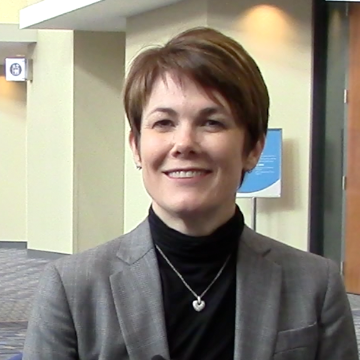Article
Risankizumab Provides Long-term Psoriasis Skin Clearance
Author(s):
Results from the phase 3 IMMhance study show that of patients who reached sPGA 0 at week 28, 73% maintained skin clearance at week 94.

Melinda Gooderham, MD
Long-term results from the phase 3 IMMhance study of risankizumab (Skyrizi) in patients with psoriasis indicated that a significant number of patients receiving risankizumab maintained complete skin clearance at week 94.
"Results show that Skyrizi has the potential to provide long-term relief from the signs and symptoms of psoriasis," said Marek Honczarenko, MD, PhD, vice president, immunology development, AbbVie.
In this study, patients who reached a score of clear or almost clear on the static Physician Global Assessment (sPGA 0/1) at week 28 were randomized to either continue on risankizumab or placebo. Of those with continuous treatment with risankizumab, 73% achieved a sPGA of 0 and 72% reached a 100% improvement in the Psoriasis Area and Severity Index (PASI 100).
In comparison, just 2% of patients randomized to withdrawal from risankizumab via placebo experienced complete skin clearance (P <.001).
"In the IMMhance study, Skyrizi provided an increasing number of patients with complete skin clearance up to 94 weeks," said Melinda Gooderham, MD, dermatologist and medical director at the SKiN Centre for Dermatology in Peterborough, Ontario and a study investigator.
These study results were presented at the 24th World Congress of Dermatology in Milan. Positive results from the first phase of the IMMhance study were announced in December 2017.
During the second phase of the study—from week 28 through week 104—patients randomized to continue on risankizumab (n = 111) received the final dose at week 88. From week 52 through week 94, the proportion of these patients achieving complete skin clearance increased. At week 52, sPGA 0 and PASI 100 responses were at 65% and 64%, and they increased to 73% and 72%, respectively at week 94 (P <.001).
At 2 years, 81% and 78% of patients treated consistently with risankizumab experienced clear or nearly clear skin (sPGA 0/1 and PASI 90) compared to 7% and 4% of those randomized to placebo in the second phase (P <.001).
Additionally, patients randomized to withdrawal (n = 225) who reached a sPGA score of moderate to severe (≥3) on or after week 32 (n = 153) were retreated with risankizumab. Of patients re-treated with risankizumab after withdrawal, 84% returned to clear or almost clear skin (SPGA 0/1) after 16 weeks of treatment.
"Skyrizi not only offers relief from the signs and symptoms of psoriasis following a withdrawal from medication, but the study further demonstrates the significant rates of complete skin clearance that can be achieved with continuous treatment at the recommended dose,” said Gooderham. “These data underscore the lasting impact this new treatment option could provide for people living with psoriasis."
No new safety signals were reported in patients who received risankizumab for 2 years compared to those who withdrew after 28 weeks.
Risankizumab was approved by the US Food and Drug Administration (FDA) for the treatment of moderate to severe plaque psoriasis in adults who are candidates for systemic therapy in April 2019. Risankizumab is currently being evaluated as a potential treatment for Crohn’s disease, psoriatic arthritis, and ulcerative colitis.





